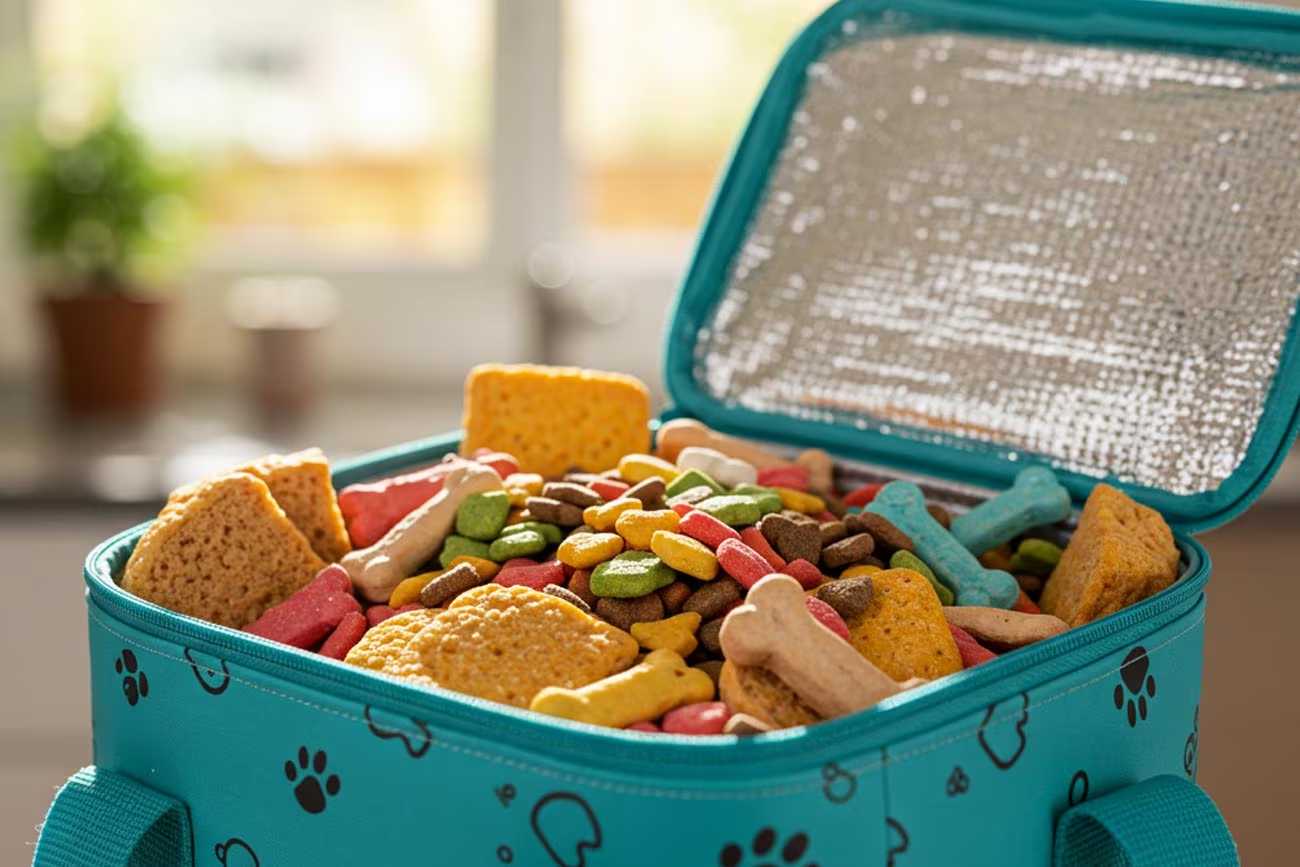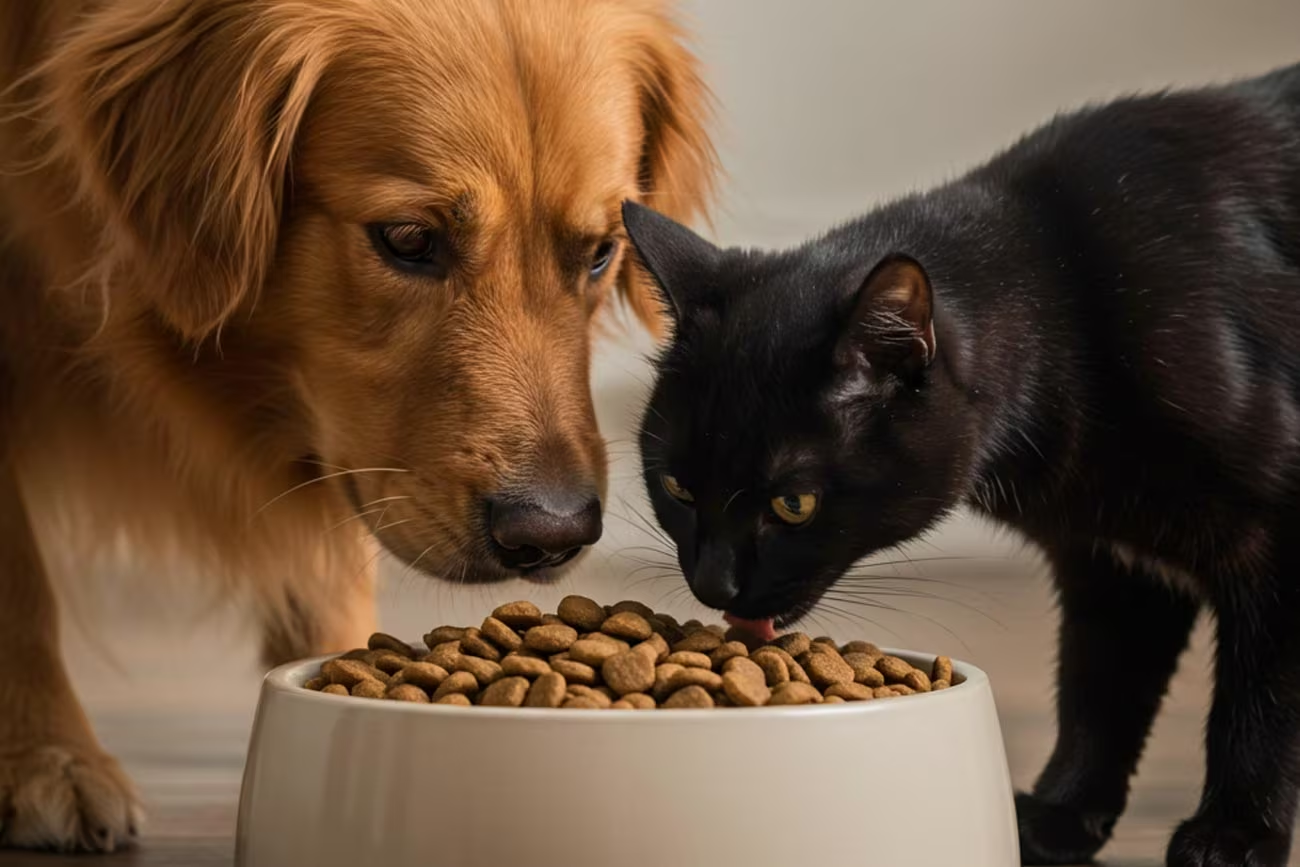
Learn how to choose the ideal pet food for your animal to eat well
Picture the scene: you arrive home after a busy day and are greeted by your pet’s excitement, who can hardly wait for mealtime. However, choosing pet food isn’t just about satisfying hunger—it directly impacts your best friend’s health, energy, and longevity. With so many brands and formulas available on the market, how do you know which one is best suited for each life stage and type of pet?
In this article, we’ll uncover how to choose the ideal pet food for your pet, considering key factors such as age, breed, and specific nutritional needs. If you want to ensure a balanced diet that promotes quality of life and prevents diseases, keep reading and discover valuable tips to transform your furry friend’s feeding routine!
Decoding Pet Food
Understanding Nutritional Needs
Why nutrition is essential:
Every pet is unique. Just like us, they have different needs at each life stage. Puppies, adults, and seniors require specialized pet food formulas that balance proteins, fats, fiber, vitamins, and essential minerals.
Factors to consider:
- Age: Puppies need more energy and nutrients for growth, while seniors require formulas that support bodily functions.
- Breed: Some breeds are predisposed to certain health conditions. Larger breeds, for example, may need joint-support formulas.
- Lifestyle: Active pets that exercise frequently may need a diet with more energy and protein.
- Special conditions: Pets with allergies, digestive issues, or other health conditions may require specific diets, often prescribed by a veterinarian.
Practical tips:
- Read labels: Check the ingredient list and ensure the formula contains high-quality protein sources.
- Look for certifications: Brands that invest in research and have regulatory approvals tend to offer safer, more nutritious products.
- Consult a vet: Before making any dietary changes for your pet, seek professional advice for personalized recommendations.
How to Identify the Ideal Pet Food for Each Life Stage
Puppies:
- High energy density: Puppies need energy to grow and develop.
- Protein-rich formulas: Essential for muscle and bone development.
- Immune system support: Ingredients that help prevent diseases.
Adults:
- Weight and energy maintenance: Balanced formulas that provide necessary nutrients without excess calories.
- Digestive health: Ingredients that promote efficient digestion and nutrient absorption.
- Disease prevention: Antioxidants and other components that support long-term health.
Seniors:
- Easy digestion: Formulas with fiber and easily digestible ingredients.
- Joint support: Nutrients that help maintain mobility and joint health.
- Lower calorie content: To avoid weight gain, common in pets with slower metabolisms.
Practical example:
If your Labrador puppy needs to build strength and develop muscles, a high-protein pet food with bone-supporting ingredients will be the best choice. On the other hand, a senior dog with a slower metabolism may benefit from a lower-calorie, higher-fiber formula to maintain digestive health.
The Importance of Ingredients and Pet Food Quality
Essential ingredients:
- Quality proteins: Meat, fish, and eggs are essential protein sources for pets.
- Complex carbohydrates: Brown rice, sweet potatoes, and other ingredients that provide sustained energy.
- Healthy fats: Omega-3 and Omega-6 help maintain healthy skin and coat.
- Vitamins and minerals: Important for immune system function, bone health, and metabolism regulation.
What to avoid:
- Artificial colors and preservatives: Can cause allergic reactions or long-term issues.
- Questionable by-products: Always verify ingredient sources.
- Excessive grains or low-digestibility ingredients: May lead to digestive problems and allergies.
Tips for pet owners:
- Research brands: Look for reviews from other pet owners and professional recommendations.
- Check guaranteed analysis: Labels displaying minimum nutrient levels indicate better-quality pet food.
- Test acceptance: Each pet has preferences; observe their reaction to new food and any improvements in physical condition.

Transitioning to a New Pet Food
Why transition matters:
A sudden change can cause gastrointestinal discomfort and stress for your pet. Therefore, switching pet food should be done gradually to allow their system to adapt.
Step-by-step for a smooth transition:
- Gradual mixing: For the first few days, mix 25% new pet food with 75% old food.
- Progressive increase: Over a week, gradually increase the new pet food ratio until fully transitioned.
- Constant monitoring: Watch for signs of discomfort, such as diarrhea or vomiting. Adjust the transition pace if needed.
- Hydration: Ensure your pet has constant access to fresh water to aid digestion and adaptation.
Practical examples:
When introducing new pet food, start by mixing small amounts with your pet’s current food. If they refuse the new mix or show discomfort, maintain the previous ratio for a few more days before gradually increasing it as their appetite normalizes. This strategy is especially important for pets with sensitive stomachs or allergy histories.
Special Considerations for Specific Breeds and Conditions
Small vs. large breeds:
- Small breeds: Typically need pet food with smaller kibble and faster digestion.
- Large breeds: May require joint-support ingredients and formulations tailored to their metabolism.
Medical conditions:
- Food allergies: Hypoallergenic formulas with alternative protein sources are available.
- Chronic diseases: Pets with kidney, heart, or digestive issues need vet-prescribed diets.
- Overweight pets: Lower-calorie, higher-fiber diets help with weight loss and metabolism.
Tips for pet owners:
- Professional evaluation: Always consult a veterinary nutritionist to tailor your pet’s diet.
- Test and adjust: Each pet reacts differently; monitor results and adjust as needed.
- Invest in quality: Remember, nutrition is the foundation of your pet’s health. Choose high-quality pet food for long-term benefits.
Keep in mind that…
Choosing the ideal pet food for your animal goes far beyond just filling their bowl. It’s about providing a balanced diet that meets their unique life stage and individual needs. By investing in proper nutrition, you not only prevent diseases but also ensure your pet has more energy, vitality, and quality of life.
Now that you know the key tips for selecting the right pet food, share this article with fellow pet owners, leave your comments, and keep following our advice to give your pet the best care possible!



